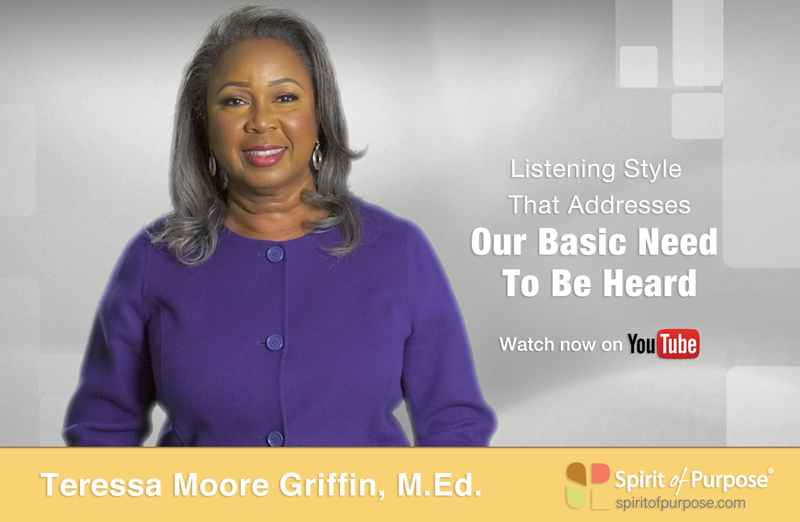VIDEO: Listening To Make Others Feel Heard
Maslow’s Hierarchy of Needs teaches us that a sense of belonging is central. Given that basic human need, it’s not surprising that those who feel threatened by social and economic changes, like outsiders who are no longer central, are speaking out more and more. When people feel ignored or undervalued, several things can happen. They might turn inward and become depressed, or they’ll turn outward and do whatever they believe will put the spotlight on them and their needs.
In every aspect of our lives, we want to matter. We seek validation. In the workplace, study after study shows that employees who feel their contributions are valued are more productive and more satisfied. They stay with organizations longer, take on greater responsibility and ownership of projects, seeing them through to completion regardless of the extra effort required.
Finding ways to assure that all feel heard is a challenge, but it’s also possible. First, its important to understand that whether or not those around you vary racially or ideologically, they are diverse. Their diversity shows up in the form of cultural differences, yes; and they also show up in diversity of thoughts, beliefs, life experiences, definitions of inclusion, degrees of self-worth and opinions about the worthiness of others.
Ensuring that everyone is heard starts with empathetic listening. Go beneath the surface and connect with people as individuals.
Empathetic listening creates a unique bond that may be intangible, not easily measured, but it can also have a ripple effect on motivation, innovation, retention, productivity, and more.
Do your part to contribute to those around you feeling heard and valued. Developing this habit will make you a contributor to a culture of inclusion.


